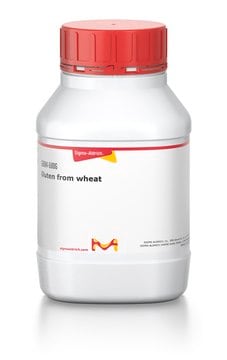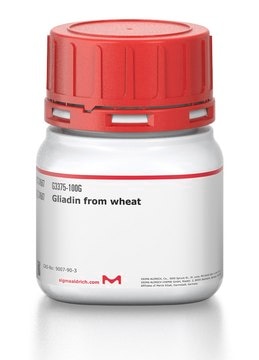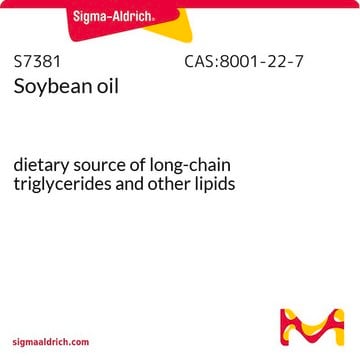S9633
Soybean flour
Type I
Sinónimos:
Soy flour, Soybean meal, Soybean protein powder
About This Item
Productos recomendados
origen biológico
Glycine max (soybean)
tpo
Type I
Formulario
powder
composición
Protein, ~52% (85+% dispersible and 1% fat.)
aplicaciones
microbiology
¿Está buscando productos similares? Visita Guía de comparación de productos
Descripción general
Aplicación
- for optimizing Triton X-114 (TX-114) based lipopolysaccharide (LPS) extraction
- as a protein supplement in the in vitro fermentation of rumen fluid
- as a protein supplement in batch culture of bovine digesta to assess its degradation
Acciones bioquímicas o fisiológicas
Nota de preparación
Código de clase de almacenamiento
11 - Combustible Solids
Clase de riesgo para el agua (WGK)
WGK 3
Punto de inflamabilidad (°F)
Not applicable
Punto de inflamabilidad (°C)
Not applicable
Equipo de protección personal
Eyeshields, Gloves, type N95 (US)
Elija entre una de las versiones más recientes:
Certificados de análisis (COA)
¿No ve la versión correcta?
Si necesita una versión concreta, puede buscar un certificado específico por el número de lote.
¿Ya tiene este producto?
Encuentre la documentación para los productos que ha comprado recientemente en la Biblioteca de documentos.
Los clientes también vieron
Nuestro equipo de científicos tiene experiencia en todas las áreas de investigación: Ciencias de la vida, Ciencia de los materiales, Síntesis química, Cromatografía, Analítica y muchas otras.
Póngase en contacto con el Servicio técnico









